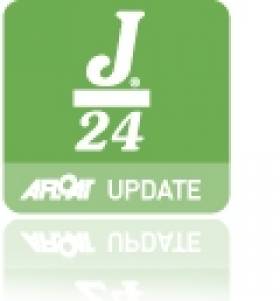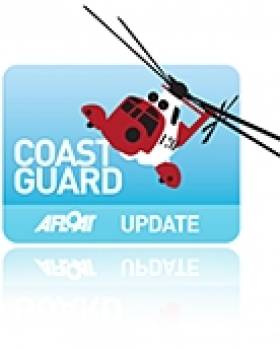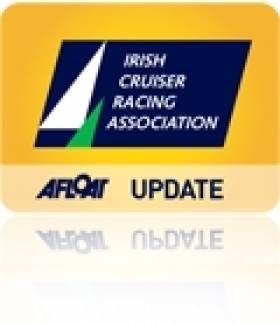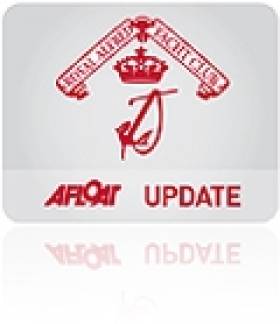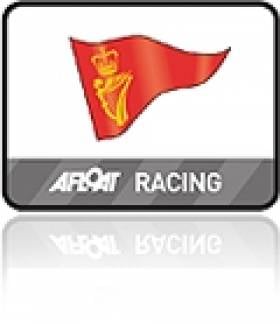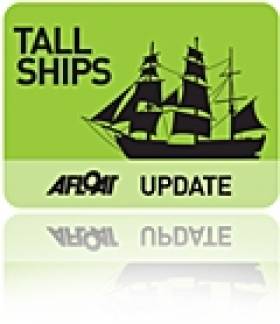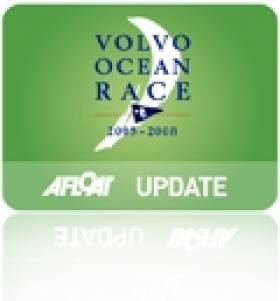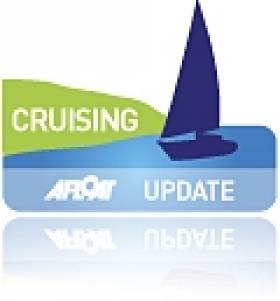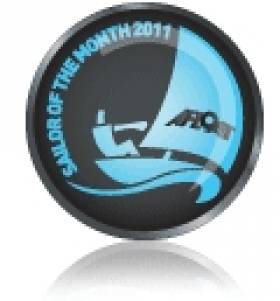Displaying items by tag: yacht
J24 World Champs for Howth in 2013
#J24–Howth Yacht Club will stage the J24 World Championships from 22nd to 30th August 2013. This follows the successful staging of the class European championships at the club in September. Irish boats will be required to qualify for the event.
Couple Rescued After Failed Attempt to Board Yacht
#RESCUE– A couple in their sixties were rescued from the water in the River Teifi, Cardigan today after their attempt to climb aboard their yacht ended with them both in the water.
Milford Haven Coastguard received a call from a member of the public at just before 10.30 am this morning. A member of the public reported that a fully-dressed person was in the water hanging on to the side of a boat. Whilst the call was being made another member of the public rowed out to the casualties.
It later transpired that there were two people in the water. The first fell in when the tender overturned as she tried to board the yacht. The second jumped off the yacht to help. Neither were wearing life jackets and the weather was far from ideal, with strong gusty winds and a very high tide.
Cardigan RNLI Lifeboat was sent to the scene, with coastguard rescue officers from Gwbert, who met the casualties and looked after them until an ambulance arrived.
Mike Day, from Milford Haven Coastguard, said :
"Both these people were very lucky to have been seen in the water so quickly. Our thanks go to the member of the public who went to their aid and pulled both from the water. This also shows the importance of wearing a lifejacket even for the shortest trips"
Howth Plans Big Event for 2012 ICRA Nationals
ICRA – the 2011 Club of the Year – laid out its stall until 2014 at the eighth annual conference in Dun Laoghaire at the weekend and the momentum is already building at Howth Yacht Club (HYC) who stage the 2012 National Championships at the beginning of next season.
The country's biggest yacht club has a potential sponsor in the wings and Saturday's conference also heard from the Club's Norbert Reilly that HYC is adding feeder events around the two day championships from May 25/27 to double the attraction of the North Dublin venue.
The Corby Cup will be sailed the weekend prior to the Nationals (19-20 May) and the Irish sea offshore body, ISORA, will stage a feeder race from Conwy in Wales to Howth. Both initiatives will encourage UK boats to travel to Dublin for the ICRA series.
Typically the ICRA event attracts over 100 boats in four different classes.
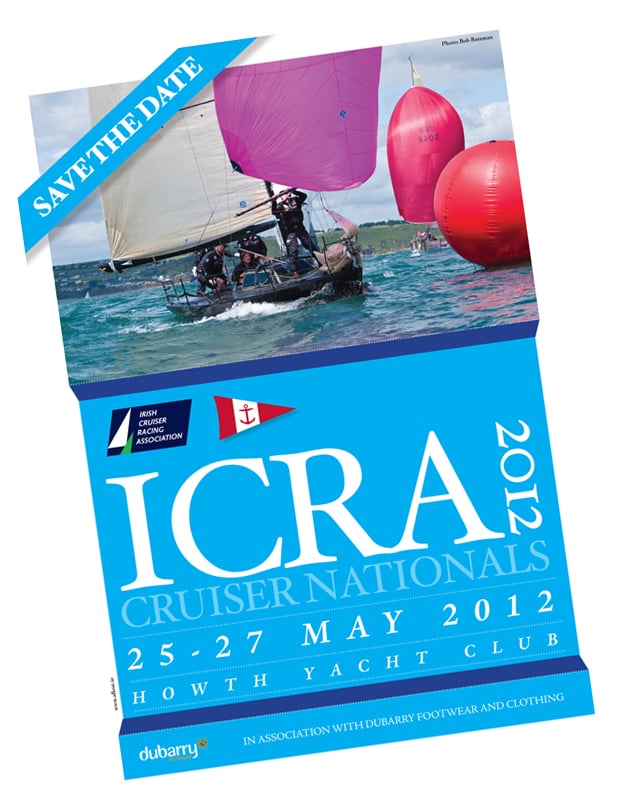
In spite of a dip in the size of the Cruiser fleet in Howth in recent years local boats are still taking some of the big prizes nationally with Reilly's Crazy Horse the 2011 Volvo Dun Laoghaire and DBSC Cruiser Challenge winner and Pat Kelly's J109 Storm picking up the weekend conference's top 'Boat of the Year' prize.
Ashore there are plans to make the event family oriented and a 'ladies lunch' is also planned.
The weekend's ICRA conference decided to do away with the crew limit rule for the seven race series in Howth as the association focuses on getting more crews out on the water to enjoy cruiser racing.
The ICRA Nationals goes West for a return visit to Tralee Bay Sailing Club in June 2013 and in 2014 the National Championships will be staged by the Royal Irish Yacht Club in Dun Laoghaire.
In the normal cycle of things 'the ICRAs' should be heading to the south coast again in 2015 but so far, the conference heard, the association is open to offers.
The 2012 ICRA Notice of Race for the Howth Championships will be available on Afloat.ie shortly
Royal Alfred Yacht Club Revive the Superleague for 2012
#SAILING–A new sailing league for 2012 to bring an 'extra focus' to yacht racing in Dublin Bay was the talk of last night's Royal Alfred Yacht Club (RAYC) black-tie awards dinner in Dun Laoghaire. The RAYC racing club will re-launch the 'Superleague' concept – first staged in the 1990s – to a new generation of sailors in 2012 with the aim of 'rewarding the best boats, skippers and crews', across the whole season, in each class in Dublin Bay, the country's biggest sailing centre.
The Superleague will be open to all classes of keelboats in Dublin Bay. In 2011 there were 15 keelboat classes with 300 boats. Visitors from Howth or elsewhere will also be welcomed in to the league.
The Superleague will consist of 10 individual events/races - six club Regattas - Dun Laoghaire Motor Yacht Club, Royal Alfred Yacht Club, Howth Yacht Club, National Yacht Club, Royal Irish Yacht Club and Royal St George Yacht Club - together with four Dublin Bay Sailing Club Saturday races - 1 in May, July, August and September. There will be four discards with six results to count.
Royal Alfred Commodore Peter Beamish believes the Superleague will bring an extra focus to racing in Dublin Bay without adding to an already cluttered event fixture list. It will increase the incentive to all boats to participate in the individual events which make up the Superleague. The club will also be awarding crew prizes which they hope will help boats build and motivate crew panels.
The hope is to provide very close overall results with final results in the balance right up to the last race in the series.
Full details of the RAYC superleague are being finalised and will be available in mid-December.
Crosbie's 'No Excuse' Awarded Royal Cork's Boat of the Year Prize
#ROYAL CORK YACHT CLUB – A leading Munster sailing figure has been deservedly recognised for his contribution to sailing.
Ted Crosbie with his Neils Jeppesen-designed X-yacht 'No Excuse' was awarded the Royal Cork Yacht Club's 'Boat of the Year' trophy at the recent Crosshaven prizegiving.
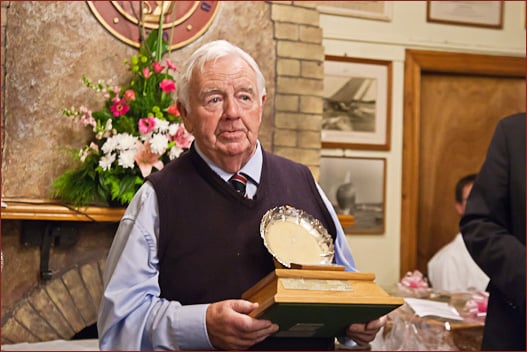
Former Club Admiral Ted Crosbie lifts RCYC's Boat of the Year Award for 2011. Photo: Bob Bateman
IWDG Hopes Day Trips Will Keep Celtic Mist Afloat
#TALL SHIPS - Not only has the Celtic Mist finally been lifted into dry dock for refurbishing this week, but the Irish Independent reports that day trips will be offered on the yacht when it returns to the water next summer.
As previously reported on Afloat.ie, the one-time personal yacht of the late Taoiseach Charles Haughey is being repurposed as a research vessel by new owners the Irish Whale and Dolphin Group (IWDG) at a cost of some €60,000.
In an effort to help fund the 52-foot ketch's refit bill and its estimated €20,000-per-year running costs, members of the public who pay €50 for a 'Celtic Mist Certificate' will be entitled to a day's sailing on board the newly retitled RV Celtic Mist.
IWDG co-ordinator Dr Simon Berrow said: "We've a lot of work to carry out on the yacht before we can take it out for research," IWDG co-ordinator Simon Berrow told the Independent. "We are confident that we can raise the money to run it."
Here's a link to a TV3 clip
Galway Revives Ancient 'Royal' Yacht Club
The 'Royal Galway Yacht Club' (RGYC) was established in 1892 but had not been heard of for quite some time. But in 2011 it has set sail again, becoming the latest Yacht Club on the Irish sailing scene and an addition to the clubs operating on Galway Bay.
It has four flag officers (three Commodores and one Admiral) and it will have 'no royal aspirations'in spite of the name according to promoter Enda O'Coineen.
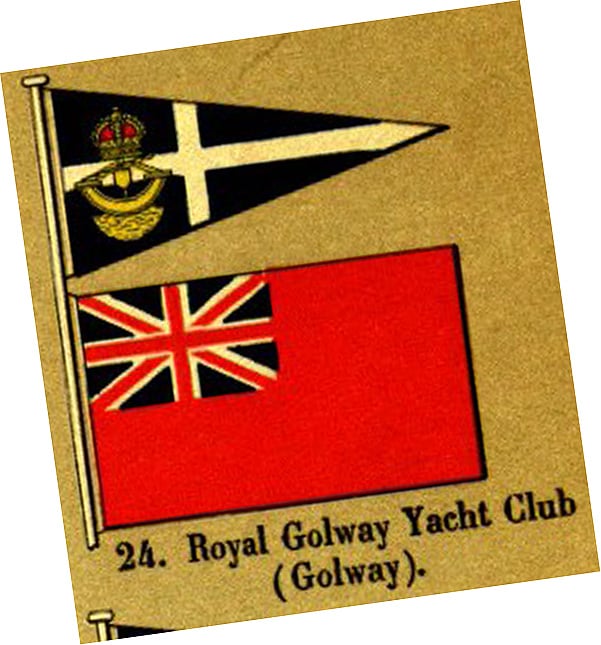
An 1800s representation of the club burgeee
In an open letter sent recently to VOR supporters, O'Coineen says the RGYC has been revived as 'a slightly unconventional club'.Anyone taking matters too seriously in the newly revived club Afloat.ie understands runs the risk of being 'black balled'.
Presumably what a yacht club in the Republic of Ireland cares to call itself is no longer of any concern to the British Home Office?
The club's intended purpose now is to promote youth sailing.
Norway Relaxes Law on Leaving Foreign Flagged Yacht
On 5th October 2011 the Norwegian Directorate of Customs and Excise amended the rules so that foreign boat owners can lay up their boats in private marinas for up to one year. (An extension for a further year will probably also be possible). Boat owners must apply to Norwegian Customs and Excise (Tollvesenet) for permission beforehand,. A special application form for boat storage has been drawn up. Currently this form is available only in Norwegian but an English version will be produced shortly.
Information about the new regulations and submitting applications can be obtained from the appropriate Customs Region. Norwegian Customs website is www.toll.no (also in English).
Norwegian yachtsmen have been at the forefront of the protest but overseas yachting organisations have also made representations to the Norwegian authorities. Foremost among these has been the UK's Cruising Association (CA). The CA's Honorary Local Representative in Oslo, Hans Jakob Valderhaug has worked tirelessly on behalf of members in close co-operation with the Association's Baltic Section Secretaries, Graham and Fay Cattell who comment: "This change in the law is a triumph for common sense and we are delighted that our members will be able to enjoy longer visits to Norway's beautiful coast without worry or penalty".
Skippers will no longer be forced to set out from Norway in inclement weather at the end of the season but can now legally leave their boats for the winter. Neither will they have to stump up a (refundable) deposit equal to the 25% VAT on the value of their boat plus a percentage tax for engine and refrigeration equipment.
Woman Jailed After Sinking Estranged Husband's Yacht
In a horror story for yacht owners who spend too much on their boats, The Guardian reports that a "manipulative and angry" woman has been jailed in Britain for sinking her estrange husband's yacht.
Mandy Fleming became enraged when she discovered her husband had been fitting out his yacht in Brighton Marina when he said he had no money.
She drilled three holes in the hull of the £75,000 (€86,700) boat and turned on cooker gas taps which turned it into a "bomb".
Turning on a light or answering a mobile phone call would have been enough to blow up the yacht, the court at the Old Bailey heard.
An estimated £40,000 (€46,250) worth of damage was caused to the boat, while four people on nearby yachts had to be evacuated from the marina.
The 47-year-old Fleming was sentenced to 18 months for endangering life by causing criminal damage.
The Guardian has more on the story HERE.
Matt Davis is September's Sailor of the Month
The welcome revival of the offshore racing programme in the Irish Sea has been steered by Peter Ryan of the National Yacht Club in Dun Laoghaire, but without the enthusiastic crew like the Skerries squad, it just wouldn't happen.
Apart from the continuous effort of keeping a frontline offshore racer and all her equipment in sound working order, the demands on personnel for time in this crowded era can be quite exceptional. The logistics are formidable, as the regular cross channel ISORA programme is based on a willingness to alternate between starting points on the Welsh and Irish coast.
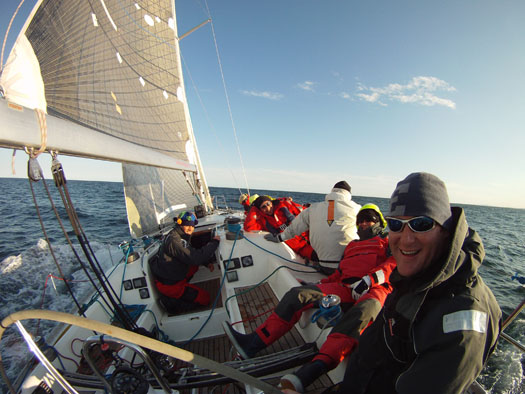
Matt Davis and crew on board Raging Bull in one of this year's ISORA races. Photo: Brian Carlin
For boats heading for an away start, it often involves an overnight passage beforehand. In the case of Raging Bull, all starts are away events, as the programme does not as yet take in Skerries. But we can hope that this will change in the future, as the nucleus of a Fingal offshore racing group develops around the Davis success.
With the summer of 2011's uneven weather, Raging Bull's crew had to be fit and ready to take full advantage of their boat's proven ability in rugged weather, while at the same time managing to turn in a respectable performance in light airs.
For the first time, the biennial Dun Laoghaire-Dingle race was recognized as an ISORA event, and Davis and his crew revelled in it. For much of the race they were the only boat mounting a significant challenge to the pace setter, Martin Breen's Reflex 38 Galway Harbour. Though the Skerries boat had to be content with the runner-up slot to the Galway boat in Dingle, they were first of all the ISORA participants, a top score which stood well to them when they continued with the Irish Sea programme right up until mid-September. Despite the limited size of the harbour, the maritime spirit of Skerries is manifesting itself in many areas of sailing, and Matt Davis's achievement is typical of the special Fingal fervour.
More on Matt's 2011 victory in Autumn Afloat magazine out next week!More ISORA News here


























